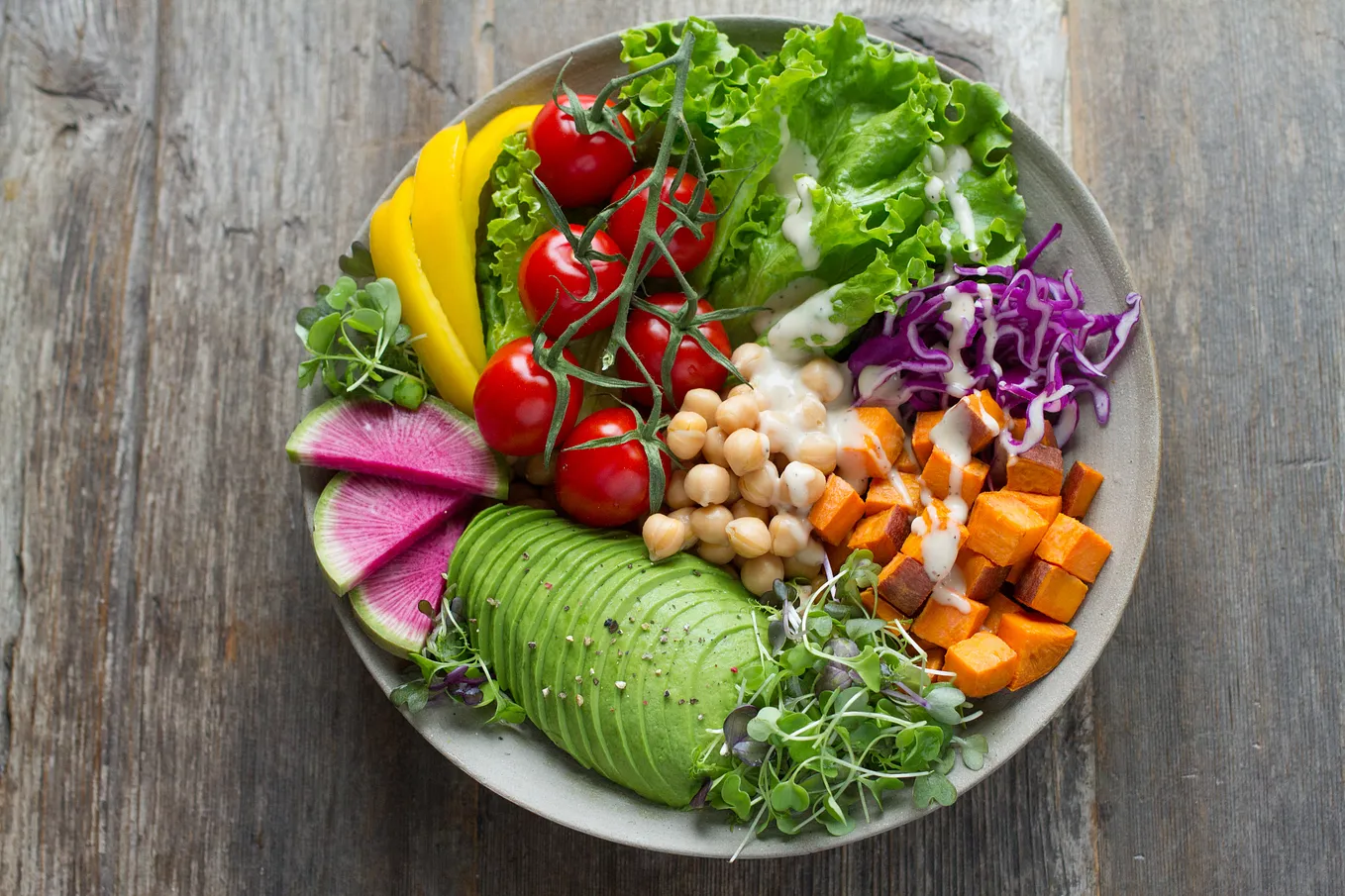A healthy diet is one of the most effective tools for enhancing your quality of life—yet for many, it feels overwhelming to know where to start. Whether you’re a fitness beginner, a health enthusiast, or simply someone looking to make smarter nutritional choices, understanding the fundamentals of good nutrition can help you unlock better energy, improved well-being, and even disease prevention.
This guide will break down the secrets of nutrition into simple, practical advice you can apply to your life right away. From understanding food groups to tips for portion control, this post will show you how to take the guesswork out of healthy eating and adopt changes that last.
What Defines a Healthy Diet?
It may sound simple, but a healthy diet is all about balance, variety, and moderation. At its core, a nutritious diet ensures your body receives all the essential nutrients—including carbohydrates, proteins, fats, vitamins, and minerals—while minimizing excess calories, sugar, and processed foods.
Here are the hallmarks of a balanced and healthy diet:
- Variety: Incorporating a range of whole foods from all food groups ensures you’re getting a diverse array of nutrients.
- Moderation: Eating appropriate portions rather than overindulging helps you maintain a healthy weight and prevents health problems.
- Minimally Processed Foods: Opting for fresh, whole foods over processed foods reduces unnecessary additives and refined sugars.
Every person has unique needs influenced by factors like age, gender, activity level, and health conditions, but the foundation of good nutrition remains the same.
Food Groups and Their Benefits
Understanding the key food groups and their roles is critical for planning a balanced diet. Each group provides specific nutrients that support your health in distinct ways:
1. Fruits and Vegetables
- Packed with vitamins, minerals, and antioxidants essential for your immune system, skin health, and energy levels.
- They’re also high in fiber, which promotes healthy digestion and keeps you feeling fuller for longer.
Example: Swap chips for carrot sticks and hummus to add nutrients without empty calories.
2. Proteins
- Proteins are the building blocks of your body. They are essential for muscle repair, growth, and overall cell function.
- Include lean meats, poultry, fish, eggs, lentils, beans, tofu, and nuts for a wide selection of options.
Tip: Combine a plant-based protein, like quinoa, with beans for a complete protein source.
3. Whole Grains
- A vital source of fiber and long-lasting energy, whole grains help stabilize blood sugar levels and support digestive health. Look for options like brown rice, quinoa, oats, and whole wheat bread.
4. Healthy Fats
- Not all fats are bad! Healthy fats, such as those in avocados, nuts, seeds, and olive oil, are crucial for brain health and absorbing fat-soluble vitamins (like A, D, E, and K).
5. Dairy or Calcium-rich Alternatives
- Essential for maintaining strong bones and teeth. Select dairy, like milk or yogurt, or fortified alternatives like almond milk or soy milk.
By incorporating all of these food groups, you give your body the nutrients it needs to thrive.
The Role of Portion Control
Even the healthiest foods can become problematic if eaten in excess. Portion sizes play a significant role in managing weight and promoting overall well-being.
Here’s how you can control portion sizes without feeling deprived:
- Use Smaller Plates: Swap your dinner plate for a smaller plate to visually reduce portion sizes.
- Measure Out Servings: Instead of eating straight from the bag, pre-measure snacks and meals to avoid overeating.
- Listen to Hunger Cues: Your body is great at telling you when it’s full—learn to recognize and respect those signals!
By managing portions, you can enjoy a wide variety of foods without worrying about overeating.
Tips for Making Healthy Choices
Navigating the modern food landscape can be tricky, but these practical tips will make it easier to make healthier decisions:
- Plan Ahead: Prepare meals in advance to avoid turning to unhealthy convenience foods.
- Learn to Read Labels: Check ingredient lists and nutrition info for hidden sugars, unhealthy fats, or additives.
- Stay Hydrated: Drinking water before meals can curb overeating and improve digestion.
- Focus on Progress, Not Perfection: Small, consistent changes are more sustainable than trying an all-or-nothing approach.
The Connection Between Diet and Health
The saying “you are what you eat” holds truth. Poor dietary choices have been linked to common health conditions, including:
- Obesity due to excess calories and sugary or fatty foods.
- Heart Disease caused by diets high in saturated fats and cholesterol.
- Type 2 Diabetes often stemming from excess sugar and refined carbohydrate intake.
- Poor Mental Health: Research suggests processed foods may negatively affect mood and cognitive function.
By contrast, nutrient-rich whole foods support not only your physical health but also your mental and emotional well-being.
Debunking Diet Myths
It seems like every week there’s a new diet trend—but not all advice is backed by science. Let’s separate fact from fiction:
- Myth: “Carbs are bad for you.”
Fact: Your body needs carbs for energy. The key is choosing complex carbs, like whole grains, over refined carbs.
- Myth: “Fats should be avoided.”
Fact: Healthy fats are essential for overall health. The key is avoiding trans fats and focusing on unsaturated fats.
- Myth: “Skipping meals helps you lose weight.”
Fact: Skipping meals can slow your metabolism and cause overeating later. It’s better to eat balanced meals regularly.
Incorporating Healthy Eating into Your Lifestyle
The most effective changes happen gradually. Here are ways to make healthy eating a long-term habit:
- Keep it Simple: Start with easy swaps, such as trading soda for water or chips for baked sweet potato slices.
- Find Joy in Cooking: Experiment with new recipes to make healthy eating exciting. It’s fun to discover healthier versions of your favorite meals.
- Seek Support: Share your goals with friends or family for encouragement, or join communities of like-minded individuals.
Consistency over time is more important than perfection—prioritize progress!
Make Nutrition Your Priority Today
Good nutrition isn’t about strict rules or depriving yourself—it’s about understanding the power of your choices. By focusing on balance, variety, and moderation, you can enhance not just your diet, but your overall quality of life.
Remember, change happens step by step. Start with one healthy habit today, and watch as it builds momentum toward a healthier, happier you. Curious to learn more? Ask questions, share your thoughts, or explore further resources here!
Meta Data
Meta Title: Healthy Choices Unlocked: Guide to Nutrition and Diet
Meta Description: Discover the secrets of nutrition! Learn about balanced diets, food groups, healthy portions, and tips to make sustainable, positive dietary changes.
Nutrition and Diet Tips for a Healthier, Happier You
When it comes to living your best life, good nutrition is non-negotiable. Your diet fuels your body, influences your mood, and sets the foundation for long-term wellness. But with so much information out there, it can be overwhelming to know where to start. The good news? It doesn’t have to be complicated. This guide will explore actionable tips to eat smarter, live healthier, and feel better. Whether you’re a health enthusiast, a fitness beginner, or someone curious about nutrition, this post is packed with valuable advice just for you.
Understanding the Basics of a Healthy Diet
A healthy diet isn’t about exclusions—it’s about balance, variety, and control. Here’s how to work toward that balance:
Exploring the Food Pyramid and Portion Control
The food pyramid remains a foundational guideline for balanced eating. It emphasizes key food groups:
- Fruits and Vegetables – Aim for half your plate to be colorful produce; the more variety, the better.
- Whole Grains – Switch out white bread and pasta for whole grains like quinoa, brown rice, and oats.
- Proteins – Focus on lean meats, fish, eggs, beans, and nuts.
- Low-Fat Dairy – Reach for options like yogurt or skim milk for bone health.
- Healthy Fats – Think avocados, olive oil, and nuts—but stick to recommended portions to avoid overindulging.
Portion size is just as crucial. Many of us eat more than we realize. Use tools like your hand as a guide. For instance:
- A serving of protein (like chicken or tofu) should be about the size of your palm.
- One serving of carbs equals roughly a cupped hand.
- A healthy fat portion should be about the size of your thumb.
Importance of Incorporating a Variety of Nutrients
Eating the same foods limits the spectrum of nutrients your body needs. Diversify your meals by experimenting with seasonal produce, different cuisines, and new protein sources. Think of it as a fun challenge—what unique meals can you create each week?
Practical Tips for a Balanced Diet
Adapting your daily habits doesn’t need to feel daunting. A few small changes can make a big difference.
Planning and Preparing Healthy Meals
Meal prepping could be your secret weapon. Spend an hour on the weekend planning your meals:
- Write a shopping list of nutrient-dense foods.
- Batch-cook meals like soups, stir-fries, or roasted vegetables for the week.
- Store portions properly, so you have ready-to-eat meals to avoid takeout temptations.
Pro Tip: Try apps like MyFitnessPal or Yummly for meal inspiration and tracking.
Smart Snacking and Hydration
Who says snacking can’t be healthy? Stock up on easy, nutritious options like:
- Almonds or walnuts (a small handful).
- Greek yogurt with fresh berries.
- Sliced veggies with hummus.
Equally important is hydration. Your body often confuses thirst for hunger, leading to overeating. Aim to drink at least eight glasses of water daily. Keep a water bottle handy as a reminder.
Special Diets and Their Benefits
With so many diets available, it’s helpful to understand some popular ones and their benefits:
The Role of Vegetarian and Vegan Diets
A vegetarian or vegan lifestyle benefits more than just the planet. Plant-based diets are rich in fiber, antioxidants, and essential nutrients. They lower the risk of chronic conditions like heart disease and diabetes.
Even if you’re not ready to go completely plant-based, start with “Meatless Mondays” or replace one meal a day with a plant-based option.
Benefits of Gluten-Free and Keto Diets
Whether you’re gluten-intolerant or seeking lower carbs, these diets can help:
- Gluten-free diets reduce inflammation and improve digestion for those with sensitivities.
- Keto diets focus on high-fat, low-carb foods, which promote quick energy and satiety.
Pro Tip: Always consult a healthcare professional before starting a new diet to ensure it suits your body’s needs.
Nutrition for Specific Goals
Different people, different goals! Tailor your diet to what you’re looking to achieve.
Weight Management: Strategies for Weight Loss or Gain
Weight Loss Tips:
- Focus on a calorie deficit—consume fewer calories than you burn.
- Eat smaller, frequent meals rich in protein and fiber to feel fuller longer.
Weight Gain Tips:
- Opt for healthy calorie-dense foods like nuts, seeds, and whole-grain cereal.
- Add healthy fats like almond butter to smoothies for a calorie boost.
Nutrition for Fitness
Pre- and post-workout nutrition keeps energy high and supports recovery:
- Pre-Workout:
- Choose complex carbs (oatmeal, bananas) for sustained energy.
- Include a bit of protein to fuel muscles.
- Post-Workout:
- Replenish with protein (grilled chicken, tofu) paired with simple carbs (sweet potato, rice).
Common Nutritional Pitfalls and How to Avoid Them
Even with the best intentions, it’s easy to slip up. Here’s how to stay on track:
Overcoming Emotional Eating and Mindless Snacking
Tips to Combat Emotional Eating:
- Pause and ask, “Am I actually hungry, or am I stressed?”
- Practice mindful eating—focus on your food, chew slowly, and avoid distractions like your phone.
Navigating Social and Environmental Influences on Diet
Dining out or attending events doesn’t mean sacrificing your nutrition goals:
- Check the menu in advance and plan healthier choices.
- Politely decline extra helpings or dessert if you’re not hungry.
Remember, one less-than-perfect meal doesn’t ruin your progress. Consistency is more important than perfection.
Build Sustainable Healthy Eating Habits
Improving your diet is a lifelong commitment, not a short-term fix. Here’s what will keep you going:
- Start Small – Implement one healthy habit at a time.
- Stay Educated – Keep learning about nutrition through trusted resources.
- Seek Professional Advice – Registered dietitians can tailor a plan to your specific needs.
With every balanced meal, you’re doing something remarkable for yourself. Celebrate those small victories, sip some water, and remember—you absolutely got this.




